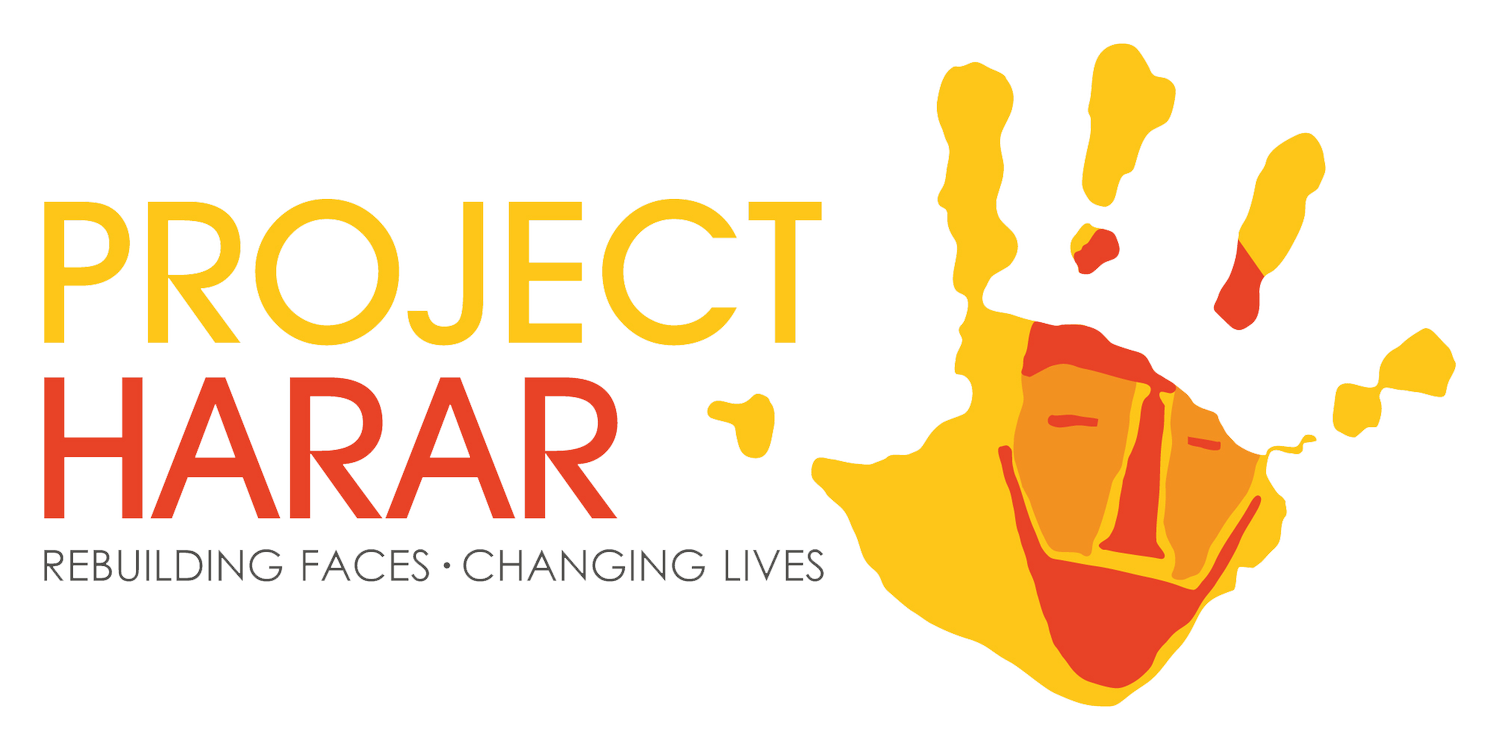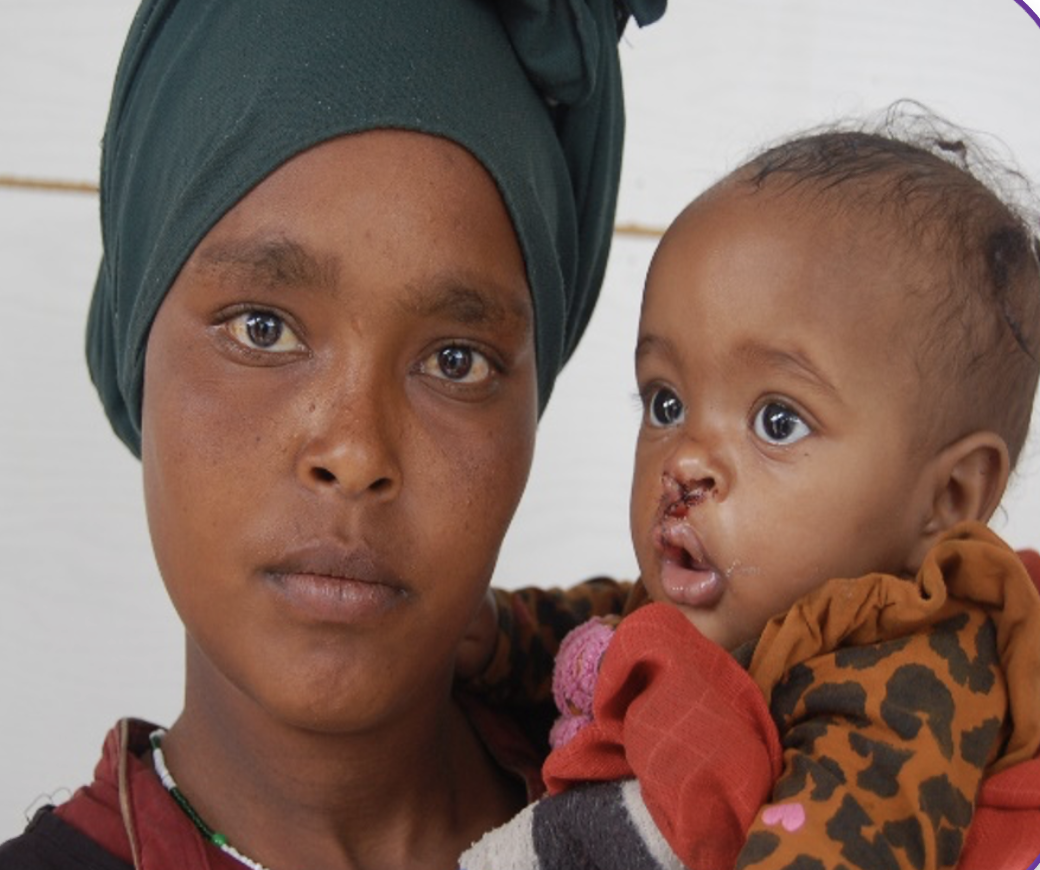SAMIRA’S STORY
Amina, the mother of seven-month-old Samira, arrived at Asella Hospital with her daughter to seek surgery for Samira’s cleft lip. Amina candidly shared her experience, describing the initial shock and upset she felt when Samira was born. Samira “was always crying and the sight of her unique appearance, her mouth had a cleft in the middle and was always wide open and as she cried she looked really strange.” her mother tells us. She then goes on to say that “When I gave birth to a child with a cleft lip, it was depressing; I really cried, I was shocked because I had not seen such a child in my community before.”
The lack of awareness about cleft conditions often leads families to feel profoundly isolated and overwhelmed when their child is born with one. Recognising this critical issue, Project Harar takes the initiative to run awareness programs aimed at spreading knowledge and understanding about cleft conditions. Additionally, we focus on training Ethiopian health and social workers to provide early diagnosis and ensure that parents are fully informed about the available treatment options for their child. By addressing the gaps in awareness and knowledge, we strive to empower families and facilitate timely access to the necessary care and support for children with cleft conditions.
Amina goes on to tell us about the stigma she has received regarding Samira’s cleft condition. “People say a lot of bad things about my baby. When I walk around carrying my baby people stare at her. Kids would stop playing by the roadside to watch her and ask me about my child. I often feel embarrassed and judged, making me want to stay inside and not go to public gatherings”. Highlighting the isolation that mothers like Amina often experience as a result of the stigma surrounding their child’s cleft condition, leading them to feel scrutinised, judged, and socially isolated, creating immense emotional distress.
Samira’s mother expresses that she “fears the stories people say about her child and I didn’t want people to visit me either because they would later spread rumours. These kinds of rumours really stressed me. As a result, I used to hide in my house.” Misconceptions about the causes of cleft conditions, coupled with a lack of information about the available treatments, can have profoundly detrimental effects on both a child’s development and their family. When families and communities lack accurate knowledge about cleft conditions and how they can be easily treated, it perpetuates a climate of misunderstanding, fear, and stigma. This can result in delayed or inadequate access to necessary medical interventions, hindering a child’s physical and emotional well-being. Furthermore, the lack of understanding and support from the broader community adds to the burdens faced by the child’s family, exacerbating their feelings of isolation, frustration, and helplessness. Breaking these misconceptions and providing comprehensive information about cleft conditions is crucial for ensuring timely intervention, promoting the child’s development, and alleviating the immense emotional and social burdens faced by both the child and their family.
Amina expresses her happiness and gratitude for the treatment her child received, emphasising that “Samira’s health condition has improved significantly after the surgery”. She thanks “the hospital for providing excellent services, acknowledging the compassionate and attentive care they received”. Amina also highlights the support they received, as “all the services, including transportation costs, were provided free of charge”. Samira and Amina’s experience reaffirms the invaluable impact of accessible and quality healthcare.




